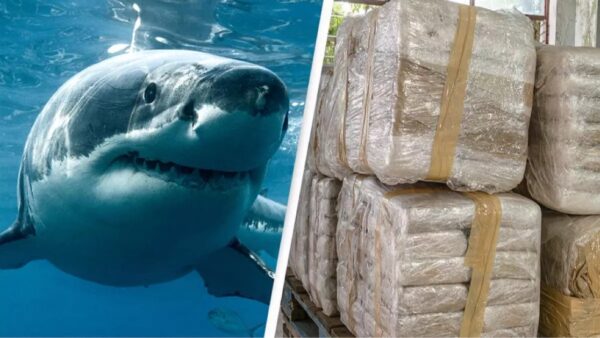
Sharks near the coast of Brazil have tested positive for cocaine, according to a recent study from Brazil.
The findings were published in the Science of the Total Environment journal, which investigated the impact of illegal drug use on marine life.
Scientists examined 13 sharpnose sharks that were caught in fishermen’s nets off a beach in Rio de Janeiro.
All 13 sharks tested positive for cocaine.
The researchers noted that the concentration of cocaine in these sharks was 100 times higher than the levels found in other marine animals in previous studies.
While it’s not clear how the sharks were exposed to cocaine, scientists speculate that the drugs could have entered the ocean through smuggling operations, accidental dumps, or sewage discharges.
“Regardless of where the drug came from – which is still not possible to determine – the results show that cocaine is being widely traded and moved in Brazil,” study coordinator Enrico Mendes Saggioro from the Oswaldo Cruz Institute reportedly said.
“Cocaine has a low half-life in the environment… so, for us to find it in an animal like this, it means a lot of drugs are entering the biota,” he explained.
“In other studies, I had already found cocaine in rivers flowing into the sea off Rio, but it was a surprise to find it in sharks – and at such a high level,” Saggioro added.
There is also concern about the potential impact on humans who consume these sharks, as they are a common part of the Brazilian diet.
“We do not know the level of impact it may have on humans, which will need to be the focus of future studies. But in any case, it serves as a warning,” researchers cautioned.


Comments are closed.